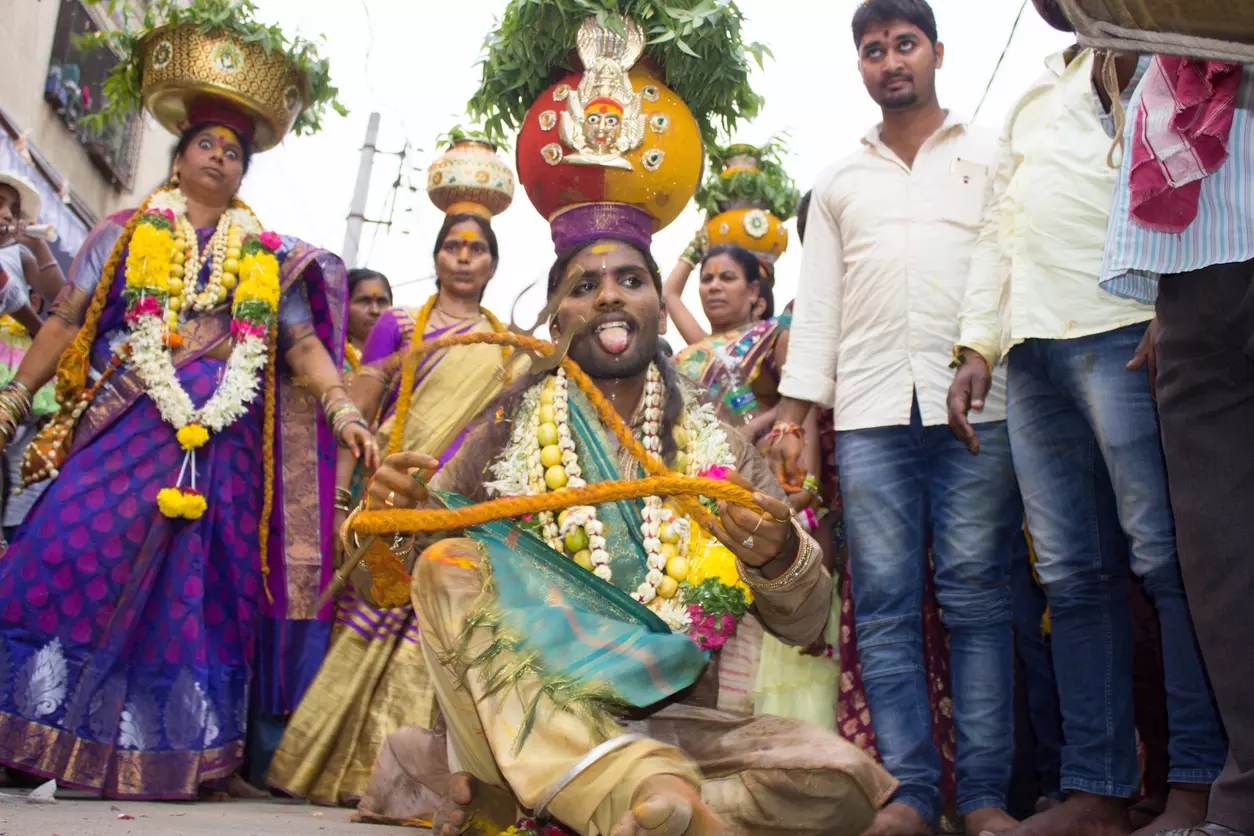
Telangana liquor sales soar as state enjoys new identity and income
Revenues from liquor sales have shot up since 2014 due to vast changes in socio-political culture heralded by Telangana movement

The carefully orchestrated promotion of Telangana identity in culture and politics appears to be paying huge dividends in the form of unusual liquor sales in the state. Even as Telangana is seeing a huge jump in liquor sales every year, there is a mad rush to corner retail liquor shop licences across the state.
The Telangana excise department was flooded with applications for retail wine shop licences last Friday. It got as many as 1,31,490 applications for 2,620 retail shops, raking in a whopping Rs 2,629.80 crore as non-refundable application fee. This is far more than the licence fee the government is supposed to get. The cost of the application form is Rs 2 lakh apiece.
The department invited applications for 2023-25 on August 1 for 2,620 retail shops in 34 excise districts. The deadline ended on August 18. On average, 50 applications were received per shop. The new shops will come into existence from December 1.
Officials say this is in tune with the growth of liquor consumption in the state. As per the latest National Family Health Survey (NFHS), Telangana occupies the second position in liquor consumption among men in the country with 43.4 per cent, the first being Arunachal Pradesh with 52.6 per cent.
Setting records
The state is in the fourth slot as far as tipplers among women are concerned (6.7 per cent) after Arunachal Pradesh (24.2 per cent), Sikkim (16.2) and Assam (7.3 per cent).
That liquor consumption has been on the rise since the formation of Telangana in 2014 is evident from the revenues the government is earning from liquor sales. According to statistics made available by the department, the revenues from liquor sales have more than doubled between 2015 and 2021. Sources in the department said the growth is unusual though some annual growth is seen nationwide, too.
While the Telangana government earned Rs 12,703 crore in 2015-16, the first year after its bifurcation from Andhra Pradesh, the revenues jumped to Rs 25,584 crore in 2021, an increase of 101 per cent.
Unusual growth
Political scientists and historians attribute it to the vast changes in the socio-political culture that the Telangana identity movement and the Telangana separate state heralded in the region. With the achievement of a separate state, the Telangana society overnight transformed into a celebration society with an emphasis on the promotion of folk festivals such as Bonalu and Batukamma and the way community gatherings are organised which invariably culminate in a feast and liquor.
Among many castes in Telangana, consumption of liquor is a collective activity. Events starting from birth to death are incomplete without offering liquor and meat to guests. This has been extensively recorded in modern history.
The Nizam’s Census Report-1931 vividly narrates how the liquor-first-food-next norm occupied primacy in community gatherings and the non-serving of liquor led to disturbances.
Cultural connection
Telugu movie Balagam (2023), which struck a chord with every family in Telangana, highlights how rituals associated with the death of a person in a village revolve around liquor and meat eating.
According to political scientist Karli Srinivasulu, the cultural connection between the Telangana society and liquor consumption got a boost after the formation of Telangana. “Since the state’s formation was based on Telangana identity, the promotion of regions-specific festivals such as Bonalu and Batukamma have been accorded top priority. In politics, statehood has invigorated the identity culture with new occasions like state formation day. The role of socio-political change coupled with an increase in the expendable income generated by welfare schemes such as Old Age Pension and Rythu Bandhu cannot be ruled out in the growth of the liquor consumption in the state,” said K Srinivasulu, a retired professor from Osmania University, Hyderabad.
Tryst with liquor
According to historian Dyavanapalli Satyanarayana, Telangana has historically evolved as a permissive society with regard to liquor consumption. “While Mahua and Jeelugu arrack were popular among Gonds and Chenchu regions, toddy was the drink of rural Telangana. After the decline of the Kakatiya kingdom, tank agriculture was neglected leading to an agrarian crisis. Then people started drinking toddy for their survival without a taboo on women and children. This way toddy became an important ingredient of everyday life and surrounded all events whether it was a birth, marriage or death in the family,” he said.
Satyanarayana said IMFL (India-made foreign liquor), which was replacing toddy and arrack in their traditional areas, entered Telangana as foreign liquor with the arrival of the British. This followed the subsidiary alliance the Nizams had with the British in 1798.
“After the formation of Telangana state, agriculture has staged a comeback following the construction of many projects. The government has introduced a slew of welfare schemes for the people. This has transformed all occasions including Batukamma and Bonalu great celebrations with liquor. Even Dasara has become a liquor festival. Liquor is ritually invoked to enliven the atmosphere in community gatherings. It’s not a surprise if the liquor consumption was doubled in the past six years amid this atmosphere,” said Satyanarayana, who is also the curator of Telangana Tribal Museums.

